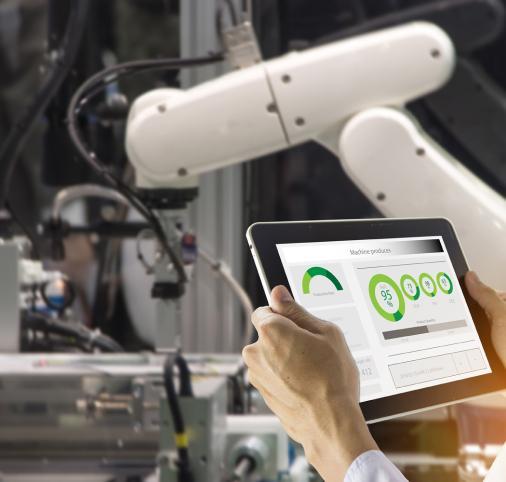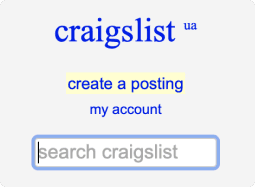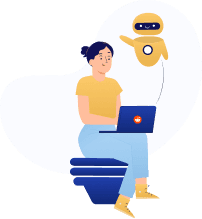Web Crawling vs Web Scraping – Understanding the Difference
Discover the difference between web crawling vs web scraping.
Get a better understanding of each method on the DataOx blog.
Ask us to scrape the website and receive free data sample in XLSX, CSV, JSON or Google Sheet in 3 days
Scraping is the our field of expertise: we completed more than 800 scraping projects (including protected resources)
Table of contents
Estimated reading time: 7 minutes
Introduction to Web Crawling vs Web Scraping
So, what is the difference between web scraping and web crawling? This is a question that business owners who have hired a web data scraping service often ask. And really, many people who are more or less familiar with data scraping can have trouble identifying the difference between these two concepts, because they are kind of similar, and go hand in hand while gathering information online.

In this article, we’ll uncover the web scraping meaning along with the web crawling meaning, and point out the key difference to prevent any confusion.
What is Web Scraping?
Web scraping, also known as web harvesting, is a process of extracting an enormous amount of information from online sources and storing it in a local or cloud-based data warehouse in SQL, XML, or Excel formats. The bots used in scraping are called scrapers, which extract content based on the given requirements in a short period of time. Though scraping is mostly done in an automated manner, there are cases when it can be done manually.
The Process of Web Scraping
As we have already noted, web scraping is the de facto extraction of content from online sources. It mainly includes studying the HTML of the page and setting up the scrapers to get content from specified elements of the HTML tree.
By using this technique, developers resolve the main issue of scraping – changes to the sites being scraped – for which the scrapers need to be updated correspondingly. So, getting the HTML code first and then scraping the content saves time that would be used fetching the data twice, and fixing only the scrapers.

The scraping process is comprised of the following four steps:
- Request the target site.
- Get the requested info in HTML format.
- Parse and extract the response. To put it simply, take the code as text and extract the relevant content.
- Download the content and save it in a CSV or JSON, or in a database to retrieve and use in the future.
Applying Web Scraping
Almost every type of business, from startups to large enterprises, can use data scraping technology to reach its business goals. So, let’s consider use case examples for how business owners can use it.
Retail marketing
Whether for competitor price monitoring or product research, data scraping is applied to collect valuable content and harvest essential insights. Similarly, for e-commerce, countless product descriptions and images are needed. With the help of content harvesting, it is quite possible to get all the necessary information. For online markets, this is the best way to keep up with the rapid changes happening every moment.
Stock market analysis
Previously, stock research was limited to reading a company’s financial statements and investing in stocks. Now, every piece of news, insight, and measure of sentiment is critical in determining the right stock. How do you get these additional facts? For this, we should look at web harvesting. You can get the whole picture of market-related information by extracting financial statements from online sources, much more quickly and easily.
Reputation management
In the internet age, companies are ready to invest in reputation management, and thus web harvesting is critical here as well. Customer reviews are becoming more and more relevant in every business, and taking advantage of any data analysis related to your brand reputation is the easiest way to keep up to date with your customers and their desires.
When planning a brand reputation strategy, the extracted content will help you understand your audience, and what can harm your brand reputation.
With the help of data scraping, you identify trending topics, influencers, and demographic facts including the geographic location, interests, age, and gender of your buyer persona.
Lead generation
One of the most significant aspects of sales and marketing is lead generation. Though lead generation is a vital approach to doing business, it can be very costly if not specifically addressed. Companies spend a lot of resources on generating qualified sales leads.
One of the main things that should be done for lead generation is determining what sources you are going to use. It is necessary to understand that you want to engage either influencers or customers and certainly to figure out how to reach your target audience. This approach will help you to refine which sources you have to scrape to get qualified leads. By using web harvesting, you can significantly reduce costs related to lead generation and develop your business by being dynamic and competent.
What is Web Crawling?
The tools used in web crawling are known as web crawlers. So, what is a web crawler and how does it work? A web crawler is a program that automatically crawls across the web by using particular links (URL addresses). Then, after accessing the necessary links, downloading and storing the HTML code for further data extraction, web scraping comes into play.
The Process of Web Crawling
Data crawling works in the following steps:
- Take the specific URLs from the crawl frontier;
- Visit all pages corresponding to those URLs;
- Review and categorize web pages;
- Index the data from the URLs found and store it in the database;
- After indexing the target data, crawlers detect outbound links;
- Repeat steps 2-5 until the frontier is empty.

In the same manner, search engines like Google or Bing use web crawlers to browse the web for pages before storing that page data to use in future searches. But there are cases where not only search engines index the content of pages, but also individual companies that use crawlers to visit websites.
Applying Web Crawling
Have you ever wondered how we got answers to our questions in this digital age? It is really convenient to enter a query into the search bar and get a list of helpful resources to get our answers. This process uses data crawling.
Search engines
Can you imagine your life without Google? Without web crawling, you wouldn’t be able to get search results from Google in such an effective manner. Every day, search engines crawl 25 billion or more pages to generate the results you are looking for.
And, because of ever-changing requests, crawlers have to be adjusted as well. Crawlers screen the pages and also rank the quality of content, and execute many other functions to create the indexing at the end.
As you can see, data crawling is critical in generating accurate results and is the leading part of web scraping.
SEO
Thanks to SEO, your site gets better rankings because it becomes more readable for search bots. Search engines reach your page thanks to crawling, and ongoing crawling helps to display newly published changes on your site and keep the site ranking.
Thus, crawler behavior can be considered as a helpful measure to evaluate a site’s ranking and make the necessary optimization to be among the search results and have the best user experience.
Relation Between a Scraper and a Crawler
Now we know the answer to the question: “what are web scrapers?” and are able to define web scraping. You also have an idea of how to crawl data from a website and know the web crawler’s meaning.
Now, let’s understand how these can be related and once again clarify the difference. If we need info from a particular page, a parser is enough. But in this case, when we need to fetch the URLs to parse them and get the needed content, it is necessary to combine a crawler and a scraper. This procedure starts with a crawler that generates URLs to be scraped, and then a scraper comes into play and parses the information from the pages.
Resuming Web Crawling vs Web Scraping
This is the point where we emphasize that web crawling and web scraping are connected processes, but they are not the same.

Keep in mind the below table to remember the main difference between both concepts and to have an idea of which one will be more suitable for your business.
| Web Scraping | Web Crawling |
|---|---|
| It extracts a specific type of information from the target sites | It accesses the target links to download and store them |
| Is applied for downloading information | Is applied for indexing information |
| It uses scrapers | Uses crawlers or spiders |
| It is performed on both small and large scales | Is mostly used on a large scale |
| A crawler and a parser are needed | Only a crawler is needed |
Web Crawling vs Web Scraping FAQ
What is web scraping?
A scraper, also known as a ‘parser,’ is a program or script that extracts certain data specified by the user. Unlike a ‘crawler,’ it looks for specific information on a specific site or page and stores it on a local server in the form of SQL, XML, or Excel.
What is web crawling?
A crawler is an autonomous bot that crawls websites to search for content and further index it. At the same time, he can move between pages without a clearly defined goal or task, exploring the site according to dozens or hundreds of criteria. It is used by search engines and the scan results are used to build search results.
What is the difference between web scraping and web crawling?
The main differences between scraping and crawling are their goals and the way they work, the Parser is given clear parameters of work, a list of addresses, and specific data for scraping, and the collected data is available on request. Web crawler ‘walks’ on the links and scans everything it comes across, stores the collected information which becomes publicly available.
Final Thoughts on Web Crawling vs Web Scraping
It is now clear that both web scraping and web crawling are essential to a business. From eCommerce and retail to travel and entertainment, all industries understand the importance of data scraping for business growth. And the internet is the primary source to collect insightful information in order to be ahead of your competitors.
If you would like to know more about data scraping solutions and how to take the advantage of this sophisticated method, just schedule a consultation with our expert for free, and you will get the answers to all your questions related to online data gathering and more!
Publishing date: Sun Apr 23 2023
Last update date: Wed Apr 19 2023




